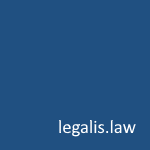Disclosure
In the context of litigation in the United Kingdom, the stage of "disclosure" involves the exchange of relevant documents and information between the parties involved in a legal dispute. Disclosure is a fundamental component of the legal process, aimed at ensuring transparency, fairness, and the proper preparation of a case for trial.
Key aspects of disclosure in UK litigation include:
- Purpose: The primary purpose of disclosure is to facilitate a fair and just resolution of the case by ensuring that all parties have access to the same information. It prevents surprises at trial, promotes settlement, and assists in narrowing the issues in dispute.
- Types of Documents: Parties are required to disclose a wide range of documents, including those that support or undermine their case. This can include correspondence, contracts, financial records, emails, reports, and any other documents that may be relevant to the issues in the case.
- Standard of Disclosure: Disclosure must be given in accordance with the applicable standard, which can vary depending on the complexity and size of the case. The standard may range from "basic disclosure" (where parties must disclose key documents that are directly relevant to the case) to "extended disclosure" (which involves a more comprehensive search for documents).
- Disclosure Lists: Parties are typically required to provide a list of the documents they intend to rely on and those they do not intend to rely on but are disclosing for other reasons, such as documents that may assist another party's case.
- Privilege: Certain documents may be protected by legal privilege, preventing their disclosure. Common types of privilege include legal advice privilege and litigation privilege. Parties must identify and assert privilege if they wish to withhold documents on these grounds.
- Electronic Documents: In the digital age, electronic documents are prevalent, and disclosure extends to electronic records, including emails, databases, and other digital data. Parties must take reasonable steps to preserve and disclose electronically stored information.
- Expert Reports: Expert reports and the documents upon which experts rely are also subject to disclosure, allowing opposing parties to assess the strength of the expert evidence.
- Ongoing Duty: Disclosure is an ongoing process, and parties have a continuing duty to disclose relevant documents throughout the litigation process, even after the initial disclosure stage.
- Court Supervision: The court may oversee and manage the disclosure process, especially in complex cases, to ensure compliance with the rules and to address any disputes or issues that may arise.
- Consequences of Non-Compliance: Failing to disclose documents or engaging in improper disclosure practices can lead to various consequences, including adverse costs orders or even sanctions.
In summary, disclosure is a pivotal stage in UK litigation, promoting transparency and ensuring that all parties have access to the information necessary to present their cases effectively. It is a critical element in achieving fair and just outcomes in legal disputes and is governed by specific rules and procedures to maintain the integrity of the legal process.
